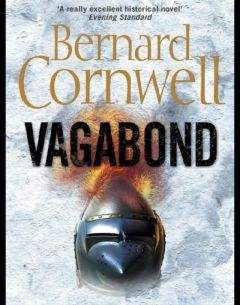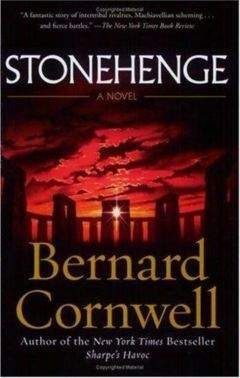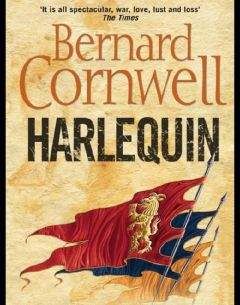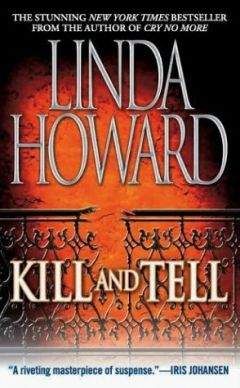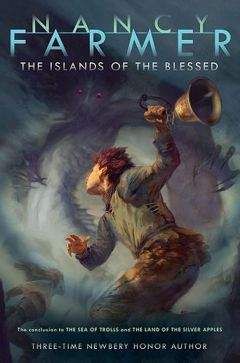The thin horseman watched as an archer swathed the prisoner's hair in a piece of sacking to extinguish the flames. 'How many of you are there?' the thin man asked.
'Thousands!' the Scotsman answered defiantly.
The horseman leaned on his saddle's pommel. 'How many thousands, culls?'
The Scotsman, his beard and hair smoking and his naked skin blackened by embers and lacerated by cuts, did his best to look defiant. 'More than enough to take you back home in a cage.'
'He shouldn't say that to Scarecrow!' Dickon said, amused. He shouldn't say that!'
'Scarecrow?' Thomas asked. It seemed an appropriate nickname for the horseman with the black axe badge was lean, poor and frightening.
'He be Sir Geoffrey Carr to you, cully,' Dickon said, watching the Scarecrow admiringly.
'And who is Sir Geoffrey Carr?' Thomas asked.
'He be Scarecrow and he be Lord of Lackby,' Dickon said in a tone which suggested everyone knew who Sir Geoffrey Carr was, 'and he be having his Scarecrow games now!' Dickon grinned because Sir Geoffrey, the whip coiled at his waist again, had dropped down from his horse and with a drawn knife, approached the Scottish prisoner.
'Hold him down,' Sir Geoffrey ordered the archers, 'hold him down and spread his legs.'
'Non!' Eleanor cried in protest.
'Pretty,' Beggar said in his voice that rumbled deep inside his huge chest. The Scotsman screamed and tried to pull himself away, but he was tripped, then held down by three archers while the man evidently known throughout the north as the Scarecrow knelt between his legs. Some-where in the clearing fog a raven cawed. A handful of archers was staring north in case the Scots returned, but most were watching the Scarecrow and his knife. 'You want to keep your shrivelled collops?' Sir Geoffrey asked the Scotsman. 'Then tell me how many there are of you.'
'Fifteen thousand? Sixteen?' The Scotsman was suddenly eager to talk.
'He means ten or eleven thousand,' Sir Geoffrey announced to the listening archers,
'which is more than enough for our few arrows. And is your bastard King here?'
The Scotsman bridled at that, but a touch of the knife blade to his groin reminded him of his predicament. 'David Bruce is here, aye.'
'Who else?'
The desperate Scotsman named his army's other leaders. The King's nephew and heir to his throne, Lord Robert Stewart, was with the invading army, as were the Earls of Moray, of March, of Wigtown, Fife and Menteith. He named others, clan chiefs and wild men
from the wastelands of the far north, but Carr was more interested in two of the earls.
'Fife and Menteith?' he asked. 'They're here?'
'Aye, sir, they are.'
'But they swore fealty to King Edward,' Sir Geoffrey said, evidently disbelieving the man.
'They march with us now,' the Scotsman insisted, 'as does Douglas of Liddesdale.'
'That ripe bastard,' Sir Geoffrey said, 'that shit of hell.' He stared northwards through the fog shredding from the ridge, which was being revealed as a narrow and rocky plateau running north and south. The pasture on the plateau was thin and the ridge's weathered stone protruded through the grass like the ribs of a starving man. Off to the northeast, beyond the valley of mist, the cathedral and castle of Durham reared up on their river-lapped crag, while to the west were hills and woods and stone-walled fields cut with small streams. Two buzzards sailed above the ridge, going towards the Scottish army that was still concealed by the fog which lingered to the north, but Thomas was thinking that it would not be long before troops came to find the men who had run their fellow Scots away from the crossroads.
Sir Geoffrey leaned back and went to return his knife to its scabbard, then seemed to remember something and grinned at the prisoner. 'You were going to take me back to Scotland in a cage, is that right?'
'No!'
'But you were! And why would I want to see Scotland? I can peer down a jakes whenever I want.' He spat at the prisoner then nodded at the archers. 'Hold him.'
'No!' the Scotsman shouted, then the shout turned to a terrible scream as Sir Geoffrey leaned forward with the knife again. The prisoner twitched and heaved as the Scarecrow, the front of his padded gambeson now sheeted with blood, stood up. The prisoner was still screaming, hands clutched to his bloody groin, and the sight brought a smile to the Scarecrow's lips. 'Throw the rest of him into the fire,' he said, then turned to look at the other two Scottish prisoners. 'Who is your master?' he demanded of them. They hesitated, then one licked his lips. 'We serve Douglas,' he said proudly.
'I hate Douglas. I hate every Douglas that ever dropped out of the devil's backside.' Sir Geoffrey shuddered, then turned to his horse. 'Burn them both,' he ordered. Thomas, looking away from the sudden blood, had seen a stone cross fallen at the crossroad's centre. He stared at it, not seeing the carved dragon, but hearing the echoes of the noise and then the new screams as the prisoners were hurled into the flames. Eleanor ran to him and held his arm tight.
'Pretty,' Beggar said.
'Here, Beggar, here!' Sir Geoffrey called. 'Hoist me!' The giant made a step with his hands and Sir Geoffrey used it to climb into his saddle, then he kicked the horse towards Thomas and Eleanor. 'I'm always hungry,' Sir Geoffrey said, 'after a gelding.' He turned to watch the fire where one of the Scotsmen, hair flaming, tried to escape, but was prodded back into the inferno by a dozen bowstaves. The man's howl was abruptly cut short as he collapsed. 'I'm in the mood to geld and burn Scotsmen today,' Sir Geoffrey said,
'and you look like a Scot to me, boy.'
'I'm not a boy,' Thomas said, the anger rising in him.
'You look like a bloody boy to me, boy. A Scots boy, maybe?' Sir Geoffrey, plainly amused by Thomas's tem-per, grinned at his newest victim who did indeed look young, though Thomas was twenty-two summers old and had fought for the last four of them in Brittany, Normandy and Picardy. 'You look Scots, boy,' the Scare-crow said, daring Thomas to defy him again. 'All the Scots are black!' he appealed to the crowd to judge Thomas's complexion, and it was true that Thomas had a sun-darkened skin and black hair, but so did a score or more of the Scarecrow's own archers. And though Thomas looked young he also looked hard. His hair was cropped close to his skull and four years of war had hollowed his cheeks, but there was still something distinctive in his looks, a handsomeness that attracted the eye and served to spur Sir Geoffrey Carr's jealousy. 'What's on your horse?' Sir Geoffrey jerked his head towards Thomas's mare.
'Nothing of yours,' Thomas said.
'What's mine is mine, boy, and what's yours is mine if I want it. Mine to take or mine to give. Beggar! You want that girl?'
Beggar grinned behind his beard and jerked his head up and down. 'Pretty,' he said. He scratched at the lice in his beard. 'Beggar likes pretty.'
'I reckon you can have the pretty when I'm through with her,' Sir Geoffrey said with a grin and he took the whip from where it hung at his waist and cracked it in the air. Thomas saw that the long leather thong had a small iron claw at its end. Sir Geoffrey grinned at Thomas again, then drew back the whip as a threat. 'Strip her, Beggar,' he said, 'let's give the boys a bit of pleasure,' and he was still grinning as Thomas swung his heavy bowstave hard into the teeth of Sir Geoffrey's horse and the animal reared up, screaming, as Thomas knew it would, and the Scarecrow, unready for the motion, fell backwards, flailing for balance, and his men, who should have protected him, were so intent on the burning Scottish prisoners that not one drew a bow or a blade before Thomas had dragged Sir Geoffrey down from the saddle and had him on the ground with a knife at his throat.
'I've been killing men for four years,' Thomas said, 'and not all of them were Frenchmen.'
'Thomas!' Eleanor screamed.
'Take her, Beggar! Take her!' Sir Geoffrey shouted. He heaved up, but Thomas was an archer and years of drawing his big black bow had given him extraordinary strength in the arms and chest and Sir Geoffrey could not budge him, so he spat at Thomas instead.
'Take her, Beggar!' he yelled again.
The Scarecrow's men ran towards their master, but checked when they saw that Thomas had a knife at his captive's throat.
'Strip her, Beggar! Strip the pretty! We'll all have her!' Sir Geoffrey bawled, apparently oblivious of the blade at his gullet.
'Who reads here? Who reads?' Father Hobbe bel-lowed. The odd question checked everyone, even Beg-gar who had already snatched off Eleanor's hat and now had his huge left arm around her neck while his right hand gripped the neckline of her frock.
'Who in this company can read?' Father Hobbe demanded again as he brandished the parchment he had taken from one of the sacks on the back of Thomas's horse. 'This is a letter from my lord the Bishop of Durham who is with our lord the King in France and it is sent to John Fossor, Prior of Durham, and only Englishmen who have fought with our King would carry such a letter. We have brought it from France.'
'It proves nothing!' Sir Geoffrey shouted, then spat at Thomas again as the blade was pressed hard into his throat.
'And in what language is this letter written?' A new horseman had spurred through the Scarecrow's men. He wore no surcoat or jupon, but the badge on his battered shield was a scallop shell on a cross and it proclaimed that he was not one of Sir Geoffrey's fol-lowers. 'What language?' he asked once more.
'Latin,' Thomas said, his knife still pressing hard into Sir Geoffrey's neck.
'Let Sir Geoffrey up,' the newcomer commanded Thomas, 'and I shall read the letter.'
'Tell him to let my woman go,' Thomas snarled.
The horseman looked surprised at being given an order by a mere archer, but he did not protest. Instead he urged his horse towards Beggar. 'Let her go,' he said and, when the big man did not obey, he half drew his sword. 'You want me to crop your ears, Beggar? Is that it? Two ears gone? Then your nose, then your cock, is that what you want, Beggar? You want to be shorn like a summer ewe? Trimmed down like an elf?'
'Let her go, Beggar,' Sir Geoffrey said sullenly.
Beggar obeyed and stepped back and the horseman leaned down from his saddle to take the letter from Father Hobbe. 'Let Sir Geoffrey go,' the newcomer ordered Thomas,
'for we shall have peace between Englishmen today, at least for a day.'
The horseman was an old man, at least fifty years old, with a great shock of white hair that looked as though it had never been close to a brush or comb. He was a large man, tall and big-bellied, on a sturdy horse that had no trapper, but only a tattered saddle cloth. The man's full-length mail coat was sadly rusted in places and torn in others, while over the coat he had a breastplate that had lost two of its straps. A long sword hung at his right thigh. He looked to Thomas like a yeoman farmer who had ridden to war with whatever equipment his neighbours could lend him, but he had been recognized by Sir Geoffrey's archers who had snatched off their hats and helmets when he appeared and who now treated him with deference. Even Sir Geoffrey seemed cowed by the white-haired man who frowned as he read the letter. 'Thesaurus, eh?' He was speaking to himself. 'And a fine kettle of fish that is! A thesaurus indeed!' Thesaurus was Latin, but the rest of his words were spoken in Norman French and he was evidently confident that no archer would understand him.
'Mention of treasure' – Thomas used the same language, which had been taught to him by his father – 'makes men excited. Overexcited.'
'Good Lord above, good Lord indeed, you speak French! Miracles never cease. Thesaurus, it does mean treasure, doesn't it? My Latin is not what it was when I was young. I had it flogged into me by a priest and it seems to have mostly leaked out since. A treasure, eh? And you speak French!' The horseman showed genial surprise that Thomas spoke the language of aristocrats, though Sir Geoffrey, who did not speak French, looked alarmed for it suggested Thomas might be a good deal better born than he had thought. The horseman gave the letter back to Father Hobbe, then spurred to Sir Geoffrey. 'You were picking a squabble with an English-man, Sir Geoffrey, a messenger, no less, from our lord the King. How do you explain that?'
'I don't have to explain anything,' Sir Geoffrey said, 'my lord.' The last two words were added reluctantly.
'I should fillet you now,' his lordship said mildly, 'then have you stuffed and mounted on a pole to scare the crows away from my newly born lambs. I could show you at Skipton Fair, Sir Geoffrey, as an example to other sinners.' He seemed to consider that idea for a few heartbeats, then shook his head. 'Just get on your horse,' he said, 'and fight the Scots today instead of quarrelling with your fellow Englishman.' He turned in his saddle and raised his voice so all the archers and men-at-arms could hear him. 'All of you, back down the ridge! And quick, before the Scots come and drive you off ! You want to join those rascals in the fire?' He pointed to the three Scottish prisoners who were now nothing but dark shrivelled shapes in the bright flames, then he beckoned Thomas and changed his language to French. 'You've really come from France?'
'Yes, my lord.'
'Then do me the courtesy, my dear fellow, of speaking with me.'
They went south, leaving a broken stone cross, burned men and arrow-struck corpses in a thinning mist, where the army of Scotland had come to Durham. Bernard de Taillebourg took the crucifix from about his neck and kissed the writhing figure of Christ that was pinned to the small wooden cross. 'God be with you, my brother,'
he murmured to the old man lying on the stone bench cushioned by a palliasse of straw and a folded blanket. A second blanket, just as thin, covered the old man whose hair was white and wispy.
'It is cold,' Brother Hugh Collimore said feebly, 'so cold.' He spoke in French, though to de Taillebourg the old monk's accent was barbarous for it was the French of Normandy and of England's Norman rulers.
'Winter comes,' de Taillebourg said. 'You can smell it on the wind.'
'I am dying' – Brother Collimore turned his red-rimmed eyes on his visitor – 'and can smell nothing. Who are you?'
'Take this,' de Taillebourg said and gave his crucifix to the old monk, then he stoked up the wood fire, put two more logs on the revived blaze and sniffed a jug of mulled wine that sat in the hearth. It was not too rank and so he poured some into a horn cup. 'At least you have a fire,' he said, stooping to peer through the small window, no bigger than an arrow slit, that faced west across the encircling Wear. The monk's hospital was on the slope of Durham's hill, beneath the cathedral, and de Taillebourg could see the Scottish men-at-arms carrying their lances through the straggling remnants of mist on the skyline. Few of the mail-clad men had horses, he noticed, suggesting that the Scots planned to fight on foot.
Brother Collimore, his face pale and his voice frail, gripped the small cross. 'The dying are allowed a fire,' he said, as though he had been accused of indulging himself in luxury. 'Who are you?'
